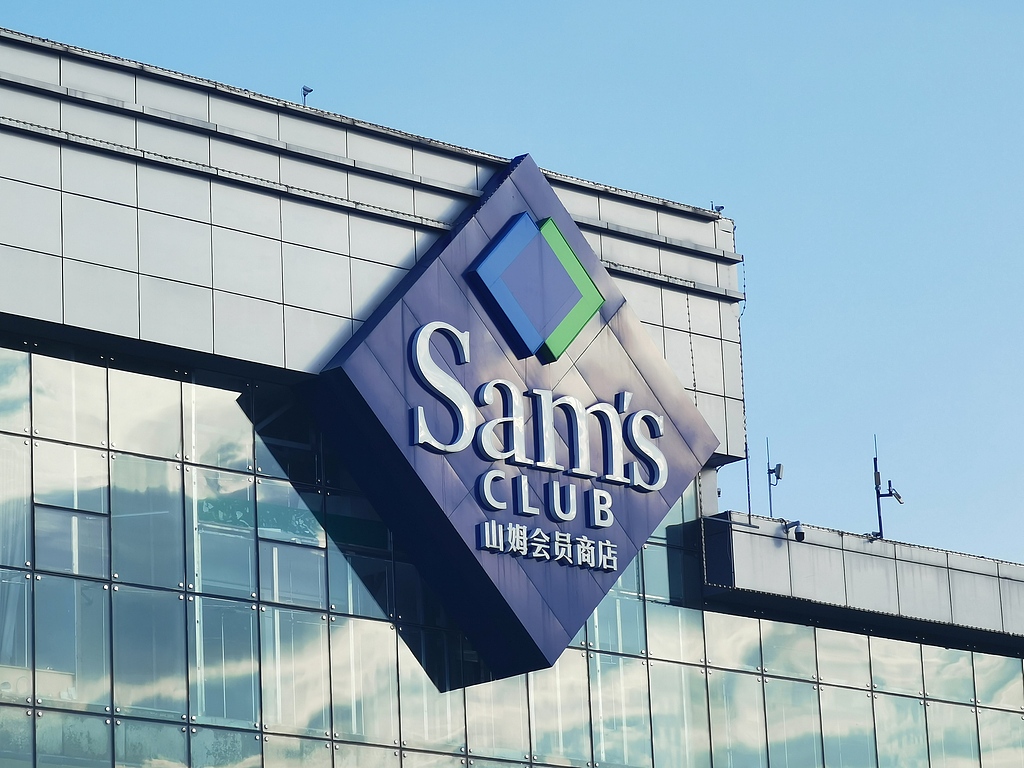Sam's Club faces backlash


Sam's Club, the membership-only retail chain owned by Walmart Inc, is under fire from Chinese consumers over its recent introduction of mass market snacks that critics claim fall short of the brand's promise of premium, carefully curated offerings.
Since early July, online users on platforms like RedNote and Weibo have voiced concerns that Sam's Club is selling products such as Orion pies, Weilong Konjac delights and Panpan's walnut vanilla puffs — snacks commonly found in ordinary supermarkets — calling into question the company's quality control and product selection standards.
A focal point of the criticism is a 48-pack of Orion pies, marketed at Sam's Club for 49.9 yuan ($7) as a low-sugar option with 30 percent more cocoa. However, consumers comparing its ingredient list to that of the regular version found no major improvements. Both versions still contain additives like shortening and acesulfame potassium, often criticized for potential health risks. In fact, the Sam's Club version was found to have a higher fat content than the standard product.
The backlash is further intensified by the shadow of a scandal from 2022. Orion came under fire in China for allegedly using a dual-standard ingredient list — one for consumers in its home country of South Korea and another, which contained ingredients including cocoa butter substitute (containing trans fats), in the Chinese market.
The uproar highlights a growing gap between Sam's Club's brand image and consumer expectations. The chain, which charges a 260 yuan annual membership fee, has long positioned itself as a purveyor of "globally sourced, high-quality products", emphasizing exclusivity and differentiated offerings.
Yet the introduction of mainstream brands like Orion and Panpan has sparked fears among loyal members that Sam's Club is veering toward homogenization, diluting its value proposition.
In response to China Daily queries, Walmart China stated: "We have noticed the discussions on social media regarding our product selection. As a membership-based retailer, we have always prioritized our members. We co-develop high-quality products with domestic and international suppliers and continuously improve based on member feedback. We take all member opinions seriously and will reflect them in future product strategies."
Despite the criticism, Sam's Club is expanding aggressively across China. From 2023 to 2024, the company opened 12 new stores, with plans to launch another eight in 2025.
Walmart China, Sam's Club's parent company, continues to lead the nation's retail rankings. In 2024, it recorded sales of 158.8 billion yuan, topping the China Chain Store & Franchise Association's Top 100 list.
In the first quarter, Walmart China posted net sales of $6.7 billion, up 22.5 percent year-on-year. Sam's Club contributed significantly to this growth, with comparable sales rising 16.8 percent and e-commerce revenue jumping 34 percent. Seven new Sam's Club stores were added in the past 12 months, including one in the first quarter.
Industry experts said the retailer's expansion strategy may be driving a shift toward greater localization, including the introduction of popular mass-market products, but this could come at a cost.
"On the surface, consumers are reacting to the perceived decline in product quality and the overlap with other supermarkets, which undermines the value of the membership fee," said Jason Yu, general manager of CTR Market Research.
"But the deeper issue is the mismatch between member expectations and their actual experience. Product strength is Sam's Club's core competitive edge. If it loses that, especially on food safety and differentiation, it risks alienating its base."
Yu added that there is no fundamental issue with the Orion brand itself. "The key question is whether Sam's Club can deliver a distinct product experience. If it simply sells a 'me-too' product, it won't gain consumers' votes," he said.




































